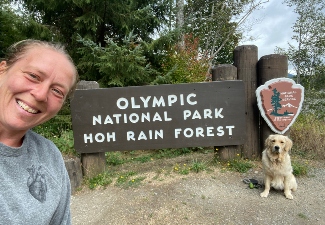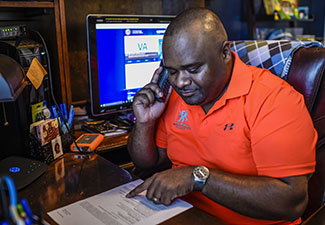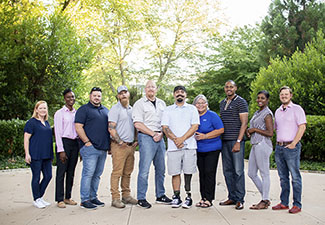Lesser-Known Benefits Veterans May Qualify For

Some of the best-known benefits veterans can qualify for include disability compensation and health care through the Department of Veterans Affairs (VA). But there are other benefits and privileges veterans may qualify for that honor their service and sacrifice.
Here’s a look at some of them.
VA Home Loans and Waived Fees
Private lenders provide VA home loans, but VA guarantees a portion of the loan, which may make qualifying easier.
VA also doesn’t require a down payment for a home loan, and many lenders will waive the down payment for a VA loan, potentially saving veterans and service members thousands of dollars in up-front costs. In addition, these loans do not require private mortgage insurance (PMI), a monthly fee on a conventional mortgage with a down payment of less than 20%.
Because of the guaranteed portion of the loan, VA home loans often qualify for better interest rates, too. VA also limits fees associated with closing costs. Veterans who already have a VA home loan may also qualify for other benefits related to the loan, including an Interest Rate Reduction Refinance Loan (IRRRL), VA-backed cash-out refinance loans, and foreclosure avoidance assistance.
Veterans may also qualify for tax exemptions on their properties. Nearly every state offers some type of tax exemption to veterans with a disability rating. A veteran with a 100% disability rating may qualify for full tax-exempt status, meaning they wouldn’t owe any property tax on their residence. Veterans can check with their state’s tax office or local VA office to see what tax exemptions they may qualify for.
VA Clothing Allowance
VA provides an annual clothing allowance to veterans whose clothing gets damaged by prosthetics, orthopedic devices, or medication for skin conditions.
To be eligible for this benefit, the need for the device or medication must be from a service-connected injury or illness.
To potentially qualify for multiple annual clothing allowances, one of the following must be true:
- More than one prosthetic or orthopedic device.
- More than one skin medicine.
- The device or skin medicine affects more than one type of clothing.
Veterans who think they qualify for this benefit must fill out an application. The application should be submitted to the Prosthetic and Sensory Aids Service (PSAS) at your nearest VA medical center on or before Aug. 1 of the benefit year for which you are applying. For example: If you are applying for the 2025 benefit, the application should be received on or before Aug. 1, 2025.
Unlike previous years, veterans who received a clothing allowance in 2022 or 2023 no longer need to apply annually for their yearly payment. However, veterans who want to receive an additional clothing allowance do not need to submit an application.
VA Housing and Vehicle Accessibility Grants
Veterans with certain service-connected disabilities may qualify for VA housing grants to buy, build, or change a home to meet their physical needs.
Specially Adaptive Housing (SAH) or Special Home Adaptation (SHA) grants can be used to make home modifications like installing ramps or widening doorways. If you qualify for an SAH grant in FY 2024 (Oct. 1 - Sept 30), you can get up to $117,014. If you qualify for an SHA grant, you can get up to $23,444 for FY 2024.
Veterans can apply for housing grants on VA’s eBenefits site or turn in an application at a VA regional office or by mail or fax.
Along with housing modifications, VA also offers grants to qualifying veterans to make driving possible or more accessible.
Veterans whose service-connected disability prevents them from driving a standard vehicle may qualify for an allowance of up to $25,000-plus for a specially equipped vehicle or an adaptive equipment grant to modify an existing vehicle.
Veterans who have lost the use of one or both of their feet or hands, have permanent decreased vision in both eyes, have a severe burn injury, have amyotrophic lateral sclerosis (ALS), or have ankylosis in one or both knees or hips may qualify for a vehicle allowance or adaptive equipment grant.
It’s important to note that claims need approval before buying an adaptive vehicle or equipment. To apply for a grant to buy a vehicle, fill out this form and mail to the address on it. The seller must also complete a claim form and provide an itemized invoice, then, VA will pay the seller directly. To apply for an adaptive equipment grant, fill out this form and return it to the prosthetic representative at the local VA center.
Education and Employment Assistance

Most veterans are aware of the GI Bill, which helps them pay for school and other expenses. But there are other education and training benefits available to veterans and their families.
The Veterans Readiness and Employment (VR&E) program assists veterans with a service-connected disability that impacts their ability to work. The program offers multiple service tracks that can help wounded veterans get education and training, find and keep a job, or even help you start your own business.
VA also offers Personalized Career Planning and Guidance to help veterans with career counseling, planning, and resources.
Veterans may also qualify for special scholarship programs, including the Edith Nourse Rogers STEM Scholarship, which provides up to nine months of benefits for training in high-demand fields.
If you’re currently on active duty, you can still pursue your higher education. The military Tuition Assistance (TA) program allows the branches of the military to pay up to 100% of tuition expenses for its members. Unlike a student loan, TA does not have to be paid back, allowing active-duty service members to jump start their higher education without the debt.
Family members can also often qualify for education benefits. Children or spouses of a veteran or service member may be eligible for Survivors’ and Dependents’ Education Assistance, in cases where the service member or veteran has died, was captured or is missing, or has a service-connected disability.
Veterans and service members may also be able to transfer education benefits to a spouse or child.
Veterans with a 100% disability rating may also qualify for additional benefits, such as discharge of federal student loans and free college for their dependents.
When it comes to employment, veterans with a VA disability rating or who served on active duty during certain campaigns qualify for a preference in hiring for federal jobs. Even veterans with a 0% disability rating can qualify for the 10-point veteran preference, which means they will be given preference in hiring over other qualified candidates.
Commissary and Exchange Privileges
Many service members may still qualify for commissary and exchange privileges after leaving the military. Those who can still use the commissary or post exchange are:
- Veterans with a service-connected disability rating and honorable discharge.
- Retired from military service.
- Former prisoner of war.
- A member of the Reserves.
- Purple Heart or Medal of Honor recipient.
Family members may also qualify if any of the following are true:
- Surviving (not remarried) spouse of a service member.
- Primary family caregiver of an eligible veteran.
- Dependent or survivor of an eligible service member.
- Dependent of an eligible member of the Reserves.
Some of the main benefits of these privileges are that veterans and their family members can purchase goods tax-free and often with special military pricing. These include food, clothing, electronics, and more. If you don’t live near a military installation, you can also use these privileges to shop online at online exchanges and shopmyexchange.com.
Parks and Recreation Passes

Veterans, Gold-Star families, and active-duty service members and their families can get free lifetime and annual passes to U.S. National Parks. The benefit is part of the National Park Service and Department of Defense’s Operation Live Well initiative. The passes provide access to more than 2,000 parks and recreation areas across the county.
Getting a pass is easy. You can order it here and have it shipped to your home for a $10 processing fee or pick it up for free at sites that issue passes. The passes admit the pass holder and all occupants of a single, non-commercial vehicle at no cost.
The Benefits of WWP
In addition to the numerous benefits veterans qualify for through government and state organizations, injured, wounded, or ill post-9/11 veterans and their families qualify for the many life-changing programs and services Wounded Warrior Project® (WWP) provides.
These programs include connection events, mental and physical health and wellness programs, family support, and nonclinical telephonic emotional support.
WWP™ can also assist with financial wellness, including filing for VA benefits, creating budgets, debt management, career counseling, and resume writing assistance.
Find out how WWP can help you.
Contact: Paris Moulden, Public Relations, pmoulden@woundedwarriorproject.org, 904.570.7910
About Wounded Warrior Project
Since 2003, Wounded Warrior Project® (WWP) has been meeting the growing needs of warriors, their families, and caregivers — helping them achieve their highest ambition. Learn more about Wounded Warrior Project.



